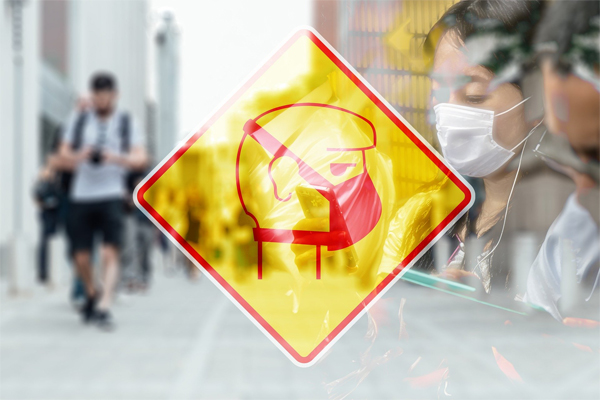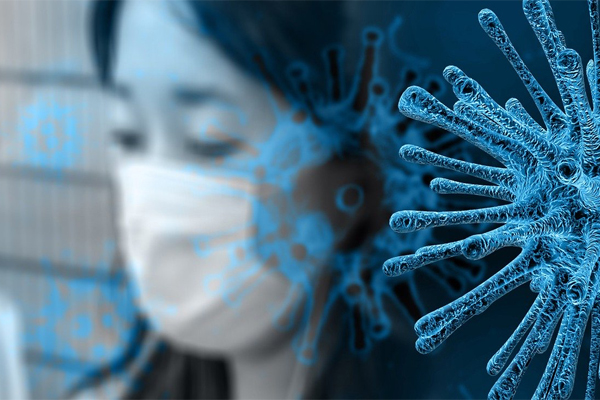Community Business’ Emily Moss explores the lessons that workplaces in Europe, US and other regions can learn from Asia’s COVID-19 experience and outlines how to prioritise employee wellbeing during lockdown.
This year’s Lunar New Year celebrations were overshadowed by the rapid spread of the Coronavirus, which originated in the Chinese city of Wuhan, Hubei Province. On 31st January the virus was declared a global public health emergency by the World Health Organization (WHO) and most cities in China were placed on lockdown (affecting some 45 million people) as the country attempted to halt the spread of the virus.
For organisations and citizens in Greater China, the precautionary circumstances they found themselves in echo those instigated in 2003 when Severe Acute Respiratory Syndrome (SARS) ripped through the region, infecting over 8,000 people globally and claiming over 774 lives (the majority of which were in Greater China). It is thought that SARS cost the world economy an estimated US$40 billion.
PRIORITISING PHYSICAL & EMOTIONAL HEALTH
Taking measures to ensure your employees are in the best physical and emotional health at this difficult time is paramount. Healthy and happy employees are productive employees and organisations should consider the long-term safety and health of their employees in order to future-proof their businesses. The shadow of the SARS outbreak still hangs over the region, and many citizens are feeling – once again – afraid, stressed and helpless. This can have a negative effect on their engagement at work, their productivity and mental wellbeing, not to mention their physical wellbeing if they do fall sick.
From an employee wellbeing perspective, given the precarious situation Hong Kong has been in during the last year, many employees were distressed by the outbreak of the coronavirus, even when they or their families were not displaying symptoms. Compounded by the economic and social impact of the protests in Hong Kong, many citizens were considering whether or not to permanently leave the city. The outbreak poses a potential threat to economies as well as business sustainability not just in Hong Kong, but worldwide. Economies and businesses worldwide must therefore prepare for a difficult few months ahead.

COVID-19 PREPARATION
At Community Business, we have compiled a few simple measures that organisations and individuals should consider implementing to help ensure their employees’ wellbeing at this difficult time. For starters, companies should show care and understanding to all employees and take their health concerns and their decisions to self-quarantine, if they do not feel safe travelling, seriously.
Managers should encourage their teams to take advantage of the digital tools at their disposal and work virtually to minimise face-to-face interaction. They should make allowances for a loss of motivation when teams are siloed for an extended period of time and plan for short, regular catch-up meetings to keep teams engaged.

Image credit: Pixabay
WORK-LIFE HARMONY
Managers should remind team members to reach out and communicate with each other to minimise the social detriment of working in isolation. Employees working from home should ensure they maintain a healthy work-life harmony by taking regular breaks and building in an exercise regime within the confines of what is safe and appropriate.
Companies should also encourage their employees to monitor their health closely. Given the high rate of infection in mainland China, companies might consider imposing a 14-day quarantine or work-from-home policy for any employee who has personally or has a family member who has recently travelled from China.
Firms should also develop protocols for when their employees fall sick, or if their employees have been in close contact with someone who has contracted the Coronavirus. Emotional as well as physical wellbeing of employees should be taken into consideration at this time. Line managers and other colleagues should be alert to this and ensure they are being supportive and caring.

SUPPORT FOR STAFF
If your organisation provides EAP services (employee assistance programme usually operated by a third party) to employees, reminding them of these confidential support services and the relevant hotline numbers would be helpful. Organisations should be mindful of the information they share widely, ensuring that they are citing reliable and accurate news sources and not inflaming regional tensions or hostile attitudes towards any particular group.
Companies should communicate policies and procedures clearly to their employees. Companies have a responsibility to provide a safe working environment for their employees, enabling each employee to be happy, healthy and engaged. This might include allowing employees flexible working arrangements such as working from home. Companies that do not have a flexible working policy should look to implementing one as soon as possible.
Companies and line managers need to be aware of the disruption that school closures might cause for working parents and take their need to be flexible and available for childcare into consideration. As employees return to work, organising more frequent office cleaning and disinfecting especially in high traffic areas, will be important. Providing protective equipment and infrastructure to maintain workplace hygiene, such as masks, hand sanitizer, disinfectants, and hands-free trash bins, as well as a well-ventilated office.
CLIENT IMPACT
Be mindful of the fact that some employees may prefer to work at the office (as reported) if they do not have an appropriate home environment to facilitate working from home. Companies should allow for this if practical, and of course, if your country’s lockdown allows it. While planning for disruption to your own team is important, it is also key to consider the impact that these measures will have on your clients and other stakeholders that interact with your office. For example, your clients might decide to cut budgets or defer business decisions, which could impact on your longer-term revenue as well as staff morale and workload. In addition, not being able to meet face-to-face with clients may impact on the nature of work that can be delivered at this time.
Organisations may have to restructure, reschedule, or reprioritise work activities to align with the interim work arrangements. At this difficult time, we encourage employers to practice transparency, empathy and patience with their employees. As the situation unfolds over the next few weeks and months, we hope that businesses both in Asia and globally find a balance between keeping their operations running efficiently and productively and catering to the specific needs of their employees during this outbreak.
Check out the Community Business podcast on the topic here.

AUTHOR BIOGRAPHY
Emily Moss is Head of Marketing and Communications at Community Business, based in Hong Kong. She is responsible for driving and developing the overall marketing, communications, PR and media strategy at Community Business. Emily began her career in London at a boutique international development consultancy that partners with global NGOs and government agencies to establish development strategies, and monitor projects across the world. Prior to joining Community Business, Emily worked at a global advertising agency in both Shanghai and HK, managing international banking and entertainment accounts. She has also worked at an NGO in Hong Kong, focusing on donor development and major fundraising initiatives. A graduate of Bristol University and the School of Oriental and African Studies (SOAS) at the University of London, Emily holds a Master degree of Science in Violence, Conflict & Development.







































